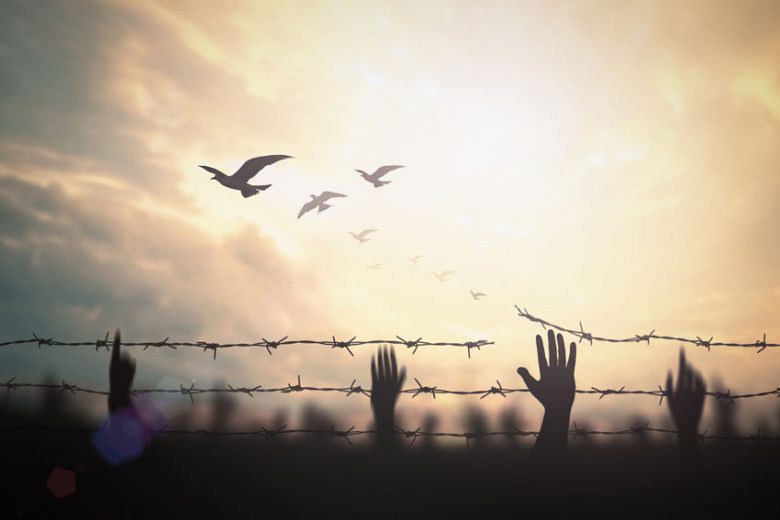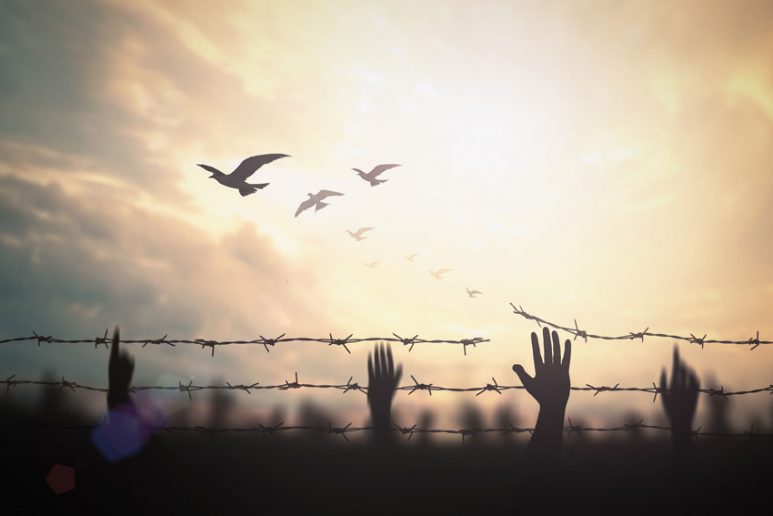By Anna Lekas Miller
Let’s talk about the Holocaust.

Today is International Holocaust Remembrance Day—a day when people around the world commemorate the millions of people who lost their lives at the hands of the Nazis during World War II.
Unfortunately, this year’s Holocaust Remembrance Day couldn’t come at a more profound moment. Earlier this month, armed white supremacists and QAnon supporters stormed the US capitol with explicit Nazi insignia. The COVID-19 pandemic has seen a resurgence in online antisemitism through conspiracy theories, as Jews are blamed for the spread of the Coronavirus and capitalizing on the vaccine.
Despite saying “never again” multiple times, it seems like Hitler’s antisemitism and hate is alive more than ever. Most alarmingly it is spread through the same tactics as it was during the 1930s—propaganda, hate speech and extremist rallies.
But while our history books and media do a good job at telling the story of how Nazi Germany targeted the Jewish people, not as many mention how many other communities were also swept up in the hatred…
For example, LGBTQIA people were forced wear a pink triangle, and many were similarly arrested and sent to concentration camps. But while queer communities today have since reclaimed the pink triangle as a symbol of pride, not as many queer voices have told the story of their version of the Holocaust.
Romani or Roma people were also swept up in the raids and taken to the camps. Again, while thousands and maybe even tens of thousands lost their lives, far fewer stories exist about this community’s experience of the Holocaust. Survivors and their descendants refer to this as a “forgotten genocide.”
Mentally and physically disabled people were systematically killed. Polish and Slavic people. Homeless and unemployed people, drug addicts sex workers—all were targeted, and killed by the Nazis.
While Hitler’s Nazi Germany and the infamous “final solution” that he promoted was absolutely an assault on the Jewish people, it is important to remember that it was also an assault on diversity on a wider scale.
As we remember and commemorate the stories from the past, it is also important that we continue to piece together the full picture to fight for diversity in the future.
Please like and subscribe to our YouTube channel, and check out the links in the description section for more resources on fighting anti-semitism and Holocaust denialism.
Resources
For more resources visit our projects:
Get The Trolls Out
Reporting Diversity Network 2.0
Photo credits: Jacob_09 / Shutterstock

